第12章
Thus freedom and an unconditional practical law reciprocally imply each other.Now I do not ask here whether they are in fact distinct, or whether an unconditioned law is not rather merely the consciousness of a pure practical reason and the latter identical with the positive concept of freedom; I only ask, whence begins our knowledge of the unconditionally practical, whether it is from freedom or from the practical law? Now it cannot begin from freedom, for of this we cannot be immediately conscious, since the first concept of it is negative; nor can we infer it from experience, for experience gives us the knowledge only of the law of phenomena, and hence of the mechanism of nature, the direct opposite of freedom.It is therefore the moral law, of which we become directly conscious (as soon as we trace for ourselves maxims of the will), that first presents itself to us, and leads directly to the concept of freedom, inasmuch as reason presents it as a principle of determination not to be outweighed by any sensible conditions, nay, wholly independent of them.But how is the consciousness, of that moral law possible? We can become conscious of pure practical laws just as we are conscious of pure theoretical principles, by attending to the necessity with which reason prescribes them and to the elimination of all empirical conditions, which it directs.The concept of a pure will arises out of the former, as that of a pure understanding arises out of the latter.That this is the true subordination of our concepts, and that it is morality that first discovers to us the notion of freedom, hence that it is practical reason which, with this concept, first proposes to speculative reason the most insoluble problem, thereby placing it in the greatest perplexity, is evident from the following consideration: Since nothing in phenomena can be explained by the concept of freedom, but the mechanism of nature must constitute the only clue; moreover, when pure reason tries to ascend in the series of causes to the unconditioned, it falls into an antinomy which is entangled in incomprehensibilities on the one side as much as the other; whilst the latter (namely, mechanism) is at least useful in the explanation of phenomena, therefore no one would ever have been so rash as to introduce freedom into science, had not the moral law, and with it practical reason, come in and forced this notion upon us.Experience, however, confirms this order of notions.Suppose some one asserts of his lustful appetite that, when the desired object and the opportunity are present, it is quite irresistible.[Ask him]- if a gallows were erected before the house where he finds this opportunity, in order that he should be hanged thereon immediately after the gratification of his lust, whether he could not then control his passion; we need not be long in doubt what he would reply.Ask him, however- if his sovereign ordered him, on pain of the same immediate execution, to bear false witness against an honourable man, whom the prince might wish to destroy under a plausible pretext, would he consider it possible in that case to overcome his love of life, however great it may be.He would perhaps not venture to affirm whether he would do so or not, but he must unhesitatingly admit that it is possible to do so.He judges, therefore, that he can do a certain thing because he is conscious that he ought, and he recognizes that he is free- a fact which but for the moral law he would never have known.
VII.FUNDAMENTAL LAW OF THE PURE PRACTICAL REASON.
Act so that the maxim of thy will can always at the same time hold good as a principle of universal legislation.
REMARK.
Pure geometry has postulates which are practical propositions, but contain nothing further than the assumption that we can do something if it is required that we should do it, and these are the only geometrical propositions that concern actual existence.They are, then, practical rules under a problematical condition of the will; but here the rule says: We absolutely must proceed in a certain manner.
The practical rule is, therefore, unconditional, and hence it is conceived a priori as a categorically practical proposition by which the will is objectively determined absolutely and immediately (by the practical rule itself, which thus is in this case a law); for pure reason practical of itself is here directly legislative.The will is thought as independent on empirical conditions, and, therefore, as pure will determined by the mere form of the law, and this principle of determination is regarded as the supreme condition of all maxims.